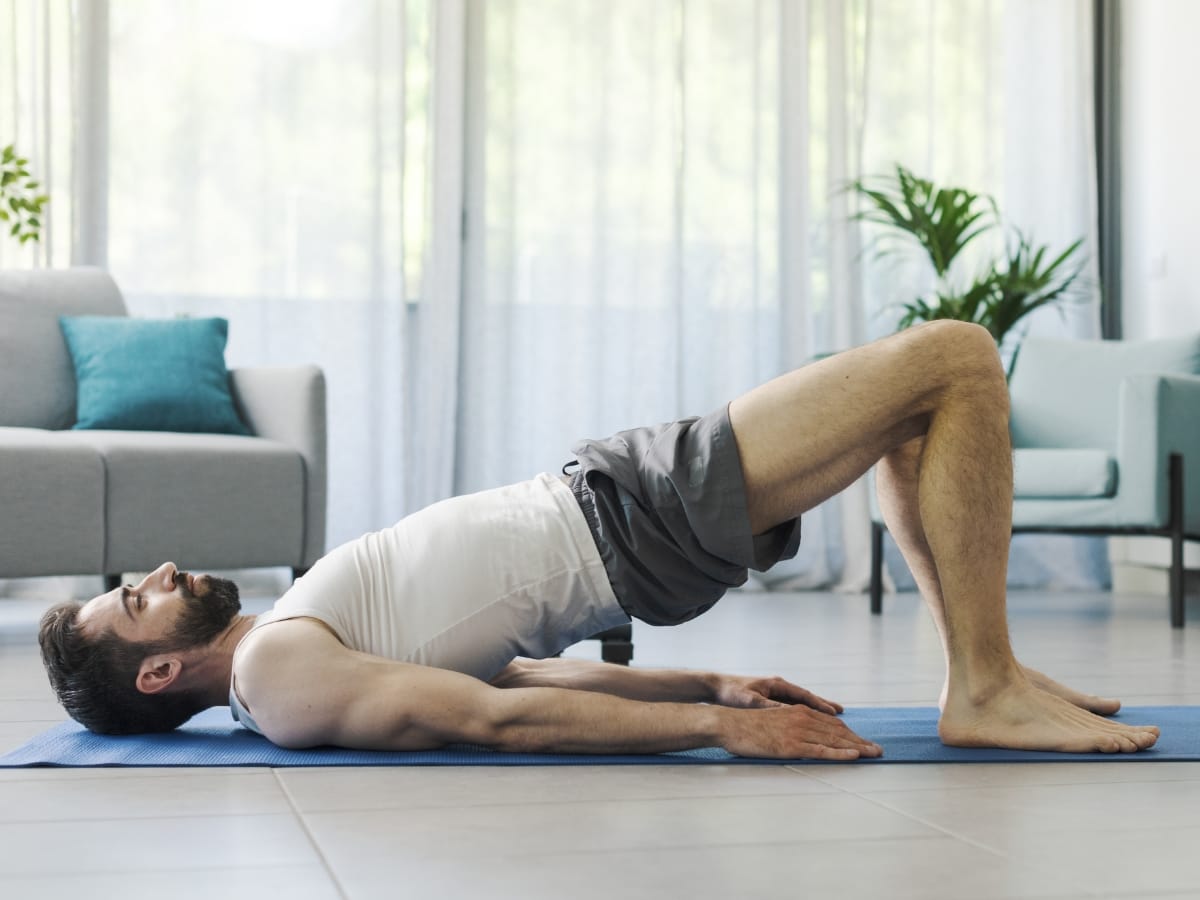Premature Ejaculation Solutions: How To Delay Ejaculation
Premature ejaculation affects an estimated 1 in 5 who are sexually active. We explore what it is, what causes it, and how it can be treated.

Early climax, or ‘premature ejaculation’, is a common concern for many men — it’s estimated to affect at least 1 in 5 who are sexually active. [1] Let’s explore what it is, what causes it, and how it can be treated.
What is premature ejaculation?
Premature ejaculation is officially defined as “ejaculation that always or nearly always occurs before, or within about 1 minute, of vaginal penetration from the first sexual experience.” [2] The causes of premature ejaculation can be both physical, such as prostate or thyroid problems and misuse of recreational drugs, or psychological, such as depression, stress, performance anxiety or relationship issues.
Remember, it’s up to individuals and their sexual partners to decide how soon is ‘too soon’ during sexual activity. If you don’t feel you’re lasting for a long enough period of time to enjoy a satisfactory sex life, there are treatments available to help.
Are there any medical treatments that help with premature ejaculation?
Yes. In the US, selective serotonin reuptake inhibitors (SSRIs) can be prescribed off-label for early climax. SSRIs are drugs primarily used for depression, but one of their side effects is a delay in ejaculation.
Sertraline is one SSRI medication prescribed for the treatment of premature ejaculation, which can help you last 7x longer. [3] It’s taken "on demand", with the recommended timing being between one and three hours before sexual activity, and limited to once a day.
Potential side effects include nausea, loss of appetite, diarrhea, or indigestion. Some studies also indicate that SSRIs may cause temporary sexual issues such as erectile dysfunction in a small number of people when taken regularly. [4]
At ZipHealth, we prescribe sertraline for premature ejaculation with no in-person appointment needed — you can learn more here.
Other premature ejaculation treatment options
Anaesthetic creams and sprays, such as lidocaine or prilocaine cream, are treatment options to help reduce sensitivity in the penis. Ask your doctor to recommend a suitable cream for your needs.
For early ejaculation caused by psychological factors such as stress, anxiety, or relationship issues, behavioral therapy can help. Speak to a health professional about your mental health to find out the options available to you.
How to stop premature ejaculation naturally
Not eligible for a prescription treatment, or not ready to try just yet? There are a few techniques you can try to help control your climax.
The stop-start technique
The stop-start method is a technique for managing premature ejaculation. This method involves stopping all movement before an orgasm, then resuming when the feeling has subsided.
Although research is limited, existing studies support the effectiveness of the stop-start strategy as a short-term treatment for premature ejaculation. One study noted that 45 to 65 percent of men reported short-term improvements using this method, although only 25 percent maintained improvements after three years. [5]
Pelvic floor exercises
Strengthening pelvic floor muscles may improve sexual health and reduce the severity of premature ejaculation, offering an alternative to medical treatments.
Pelvic floor exercises, also known as Kegel exercises, are simple routines that can be performed at home to strengthen the muscles located between the pubic bone and tailbone. These muscles help control urination and bowel movements and appear to assist with ejaculation control and healthy erections.
One study found that men with lifelong premature ejaculation achieved a longer intravaginal ejaculatory latency time (IELT, or time to ejaculation) after six months of pelvic floor rehabilitation exercises. [6]
Reducing sensation
Using a thick condom during sexual activity is a common method to reduce penile sensitivity, potentially increasing the duration of intercourse. Thicker condoms create a physical barrier that can decrease the sensations experienced during sex, delaying ejaculation. They’re available in various sizes and materials to suit individual preferences and needs, so they’re a convenient and accessible option.
As we mentioned earlier, anesthetic creams and sprays, like lidocaine or prilocaine cream, can also help reduce sensitivity in the penis. Combining the two – using an anesthetic cream with a condom – could be particularly effective.
Next steps
Struggling with premature ejaculation, or other sexual health issues such as erectile dysfunction? It's important to talk to a healthcare professional. They’ll help identify any potential underlying causes and recommend treatment options to help manage the symptoms.
Remember, premature ejaculation is a common issue. By using these tips and techniques, you can work towards taking back control and enjoying a more satisfying sexual experience again.
At ZipHealth, you can complete an online consultation and receive the right medication directly to your door, with discreet delivery. Start your free consultation here, and improve your sexual performance today.
References
- Veettil Raveendran A, Agarwal A. Premature ejaculation - current concepts in the management: A narrative review. International Journal of Reproductive BioMedicine (IJRM). 2021 Jan 25;19(1).
- Crowdis M, Nazir S. Premature Ejaculation [Internet]. PubMed. Treasure Island (FL): StatPearls Publishing; 2021. Available from: https://www.ncbi.nlm.nih.gov/books/NBK546701/
- McMahon CG. Treatment of premature ejaculation with sertraline hydrochloride. International journal of impotence research [Internet]. 1998;10(3):181–4; discussion 185. Available from: https://www.ncbi.nlm.nih.gov/pubmed/9788108
- Jing E, Straw-Wilson K. Sexual dysfunction in selective serotonin reuptake inhibitors (SSRIs) and potential solutions: A narrative literature review. Mental Health Clinician [Internet]. 2016 Jul;6(4):191–6. Available from: https://www.ncbi.nlm.nih.gov/pmc/articles/PMC6007725/
- Mohee A, Eardley I. Medical therapy for premature ejaculation. Therapeutic Advances in Urology [Internet]. 2011 Oct 1;3(5):211–22. Available from: https://www.ncbi.nlm.nih.gov/pmc/articles/PMC3199591/
- Pastore AL, Palleschi G, Fuschi A, Maggioni C, Rago R, Zucchi A, et al. Pelvic floor muscle rehabilitation for patients with lifelong premature ejaculation: a novel therapeutic approach. Therapeutic Advances in Urology [Internet]. 2014 Feb 20;6(3):83–8. Available from: https://www.ncbi.nlm.nih.gov/pmc/articles/PMC4003840/
